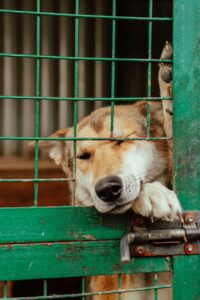Animals are living beings that experience pain, happiness, fear, and love. However, animals are not protected and respected in all circumstances that they deserve. Animal rights are a notion of giving animals a position as something that is valued on their own rather than something whose use humans take.
Understanding Animal Rights
Animal rights are the belief that animals have a natural right to exist without suffering and exploitation. While their rights are not on the same level as human rights, they do serve the purpose of promoting basic protections of the lives, health, and dignity of animals. This does not involve cruelty, unnecessary suffering, and exploitation for amusement, fashion, or scientific experimentation.

State of Animal Rights
Today Despite the growing awareness, animal cruelty still persists. The World Animal Protection Organization estimates that 70 billion farm animals are slaughtered annually for consumption. Many of these are kept in deplorable conditions. Factory farming covers such practices as overcrowding, forced growth, and painful procedures without anesthesia to serve the profit motive. Animals in the entertainment industry have been heavily exploited and utilized in circuses and marine parks. This industry does not give any importance to the animal’s physical and psychological requirements. Globally, an estimated 192.1 million animals were utilized for research related to cosmetics and pharmaceutical purposes, which might include invasive, painful, and distressing procedures, in 2020.
Legal Protection of Animals
Animal rights are very different from country to country. For example, Switzerland and Germany have incorporated animal welfare into their constitutions, meaning that animals there are given a lot of legal protection. The European Union’s Animal Welfare Act has guidelines on how to farm livestock and outlawed force-feeding. Many countries, however, have no laws against cruelty to animals. In Pakistan, although the Prevention of Cruelty to Animals Act, 1890, prohibits mistreatment, it is somewhat outdated and often inadequately enforced. Recent campaigns by welfare organizations have spurred discussions about modernization of laws and awareness programs.

The Significance of Animal Rights:
1. Ethical Responsibility Animals are conscious beings and deserve being treated for their welfare. Their rights are ignored, which increases undesirable suffering and maltreatment.
2. Environmental Impact:
Industrialization of farming causes extreme deforestation and water pollution, leading to climatic change. Husbandry for animals positively impacts the animals but is also humane toward the environment.
3. Human Health: Thus, it is proven that plant-based diets or reduced animal exploitation in farming improve health and diminish the risks of zoonotic diseases.

What Can Be Done?
Advocate for harsher legislation:
Governments must enact and enforce legislation that prevents maltreatment and exploitation of animals.
Activism: Awareness brought about by campaigns, documentaries, and social media leads to change.
Support Ethical Choices: Consumers can choose products without animal cruelty, an adopted plant-based diet, or responsibly sourced animal products.
Adopt and Foster: Adoption from shelters rather than buying ensures providing a home to the homeless and significantly reduces demand for unethical breeding. This fight should protect the right of the animal from cruelty but also raise the ethos of the entire society to be kind, sympathetic, and gentle towards everything that lives. After all, animals contribute in one way or another to the world as your companions, an essential addition in an ecosystem, just through their inherent beauty, diversity, and much more. Our work is to treat them with dignity and sensibility so that, as a society, we can rest upon them. The growing awareness and ethical decision-making for us who are supportive of policies may help the world understand animals not merely as resources but as fellow earth beings. Fighting for their rights was more than good deeds; it’s a symbol of humanity.



